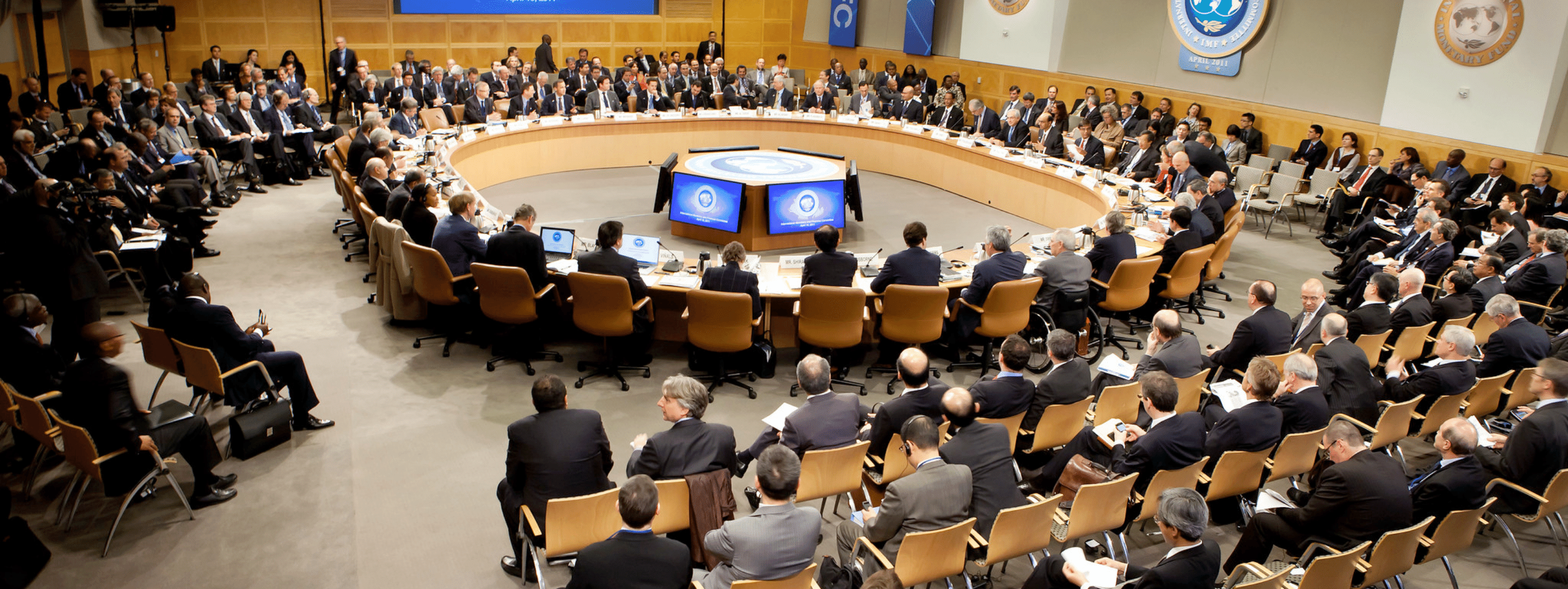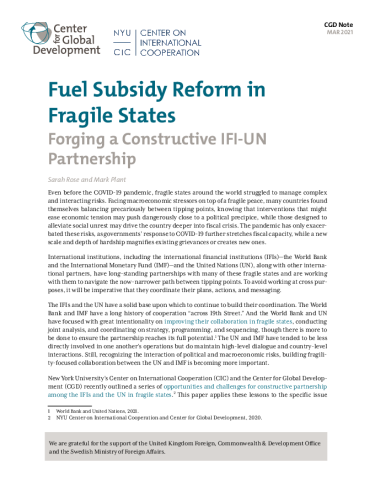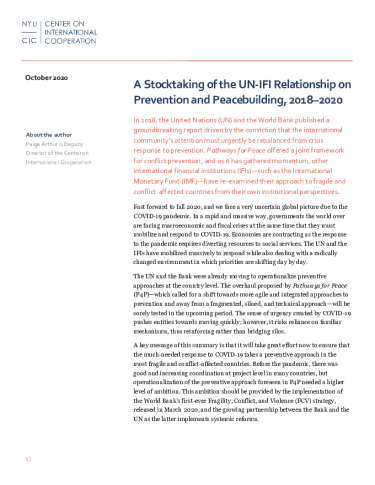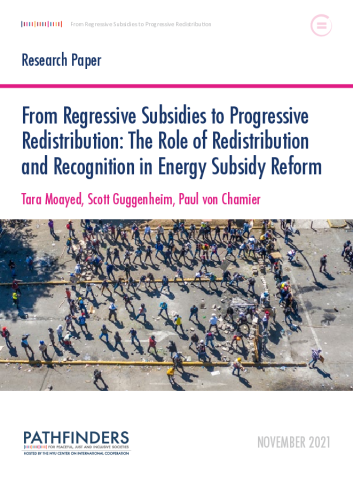Even before the COVID-19 pandemic, fragile states around the world struggled to manage complex and interacting risks. Facing macroeconomic stressors on top of a fragile peace, many countries found themselves balancing precariously between tipping points, knowing that interventions that might ease economic tension may push dangerously close to a political precipice, while those designed to alleviate social unrest may drive the country deeper into fiscal crisis. The pandemic has only exacerbated these risks, as governments’ response to COVID-19 further stretches fiscal capacity, while a new scale and depth of hardship magnifies existing grievances or creates new ones.

This policy paper outlines a series of opportunities and challenges for constructive partnership among the IFIs and the UN in fragile states. This paper applies these lessons to the specific issue of fuel subsidy reform, a policy option under consideration to manage mounting fiscal pressure in countries as diverse as Sudan and Lebanon. Relatively low international fuel prices present an opportunity, while at the same time, struggling households and fuel-dependent industries hit hard by the pandemic seek increased government support. With fuel subsidy reforms, success will be measured not only in fiscal savings, but also in the degree to which governments can navigate a tricky political course and minimize welfare loss, particularly for the poor. The World Bank, the International Monetary Fund, and UN can each support aspects of the reform agenda, but to ensure success of the whole, coordination among the three in their interactions with government will be essential.
Read the full policy paper: Fuel Subsidy Reform in Fragile States: Forging a Constructive IFI-UN Partnership
This paper was produced as a collaboration between New York University’s Center on International Cooperation (CIC) and the Center for Global Development (CGD).


